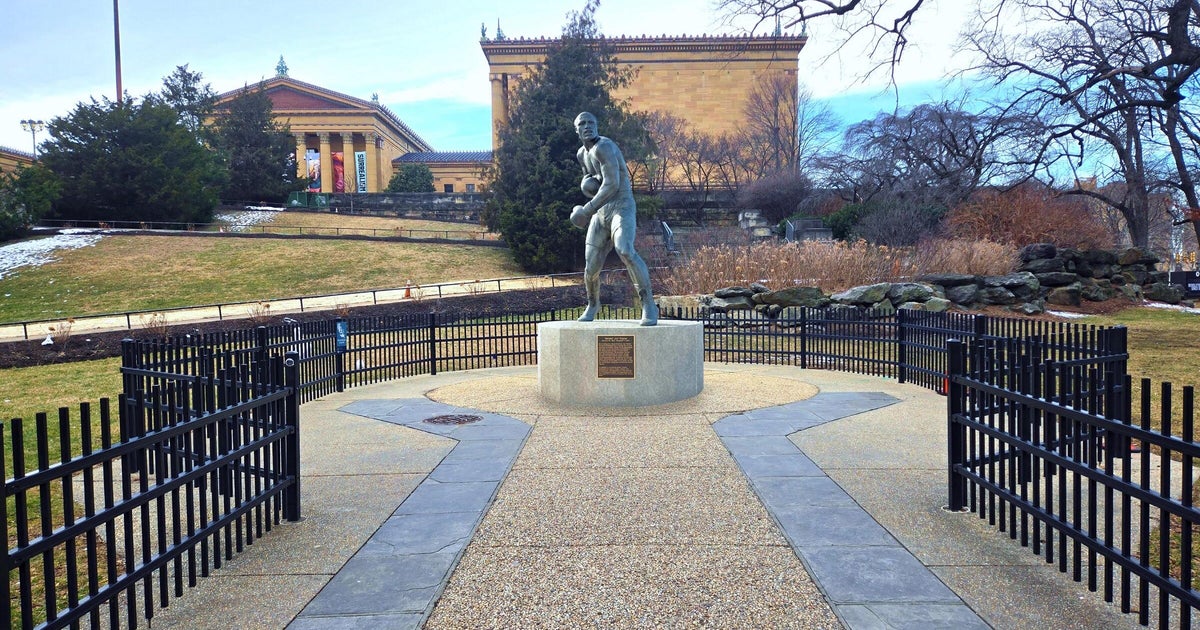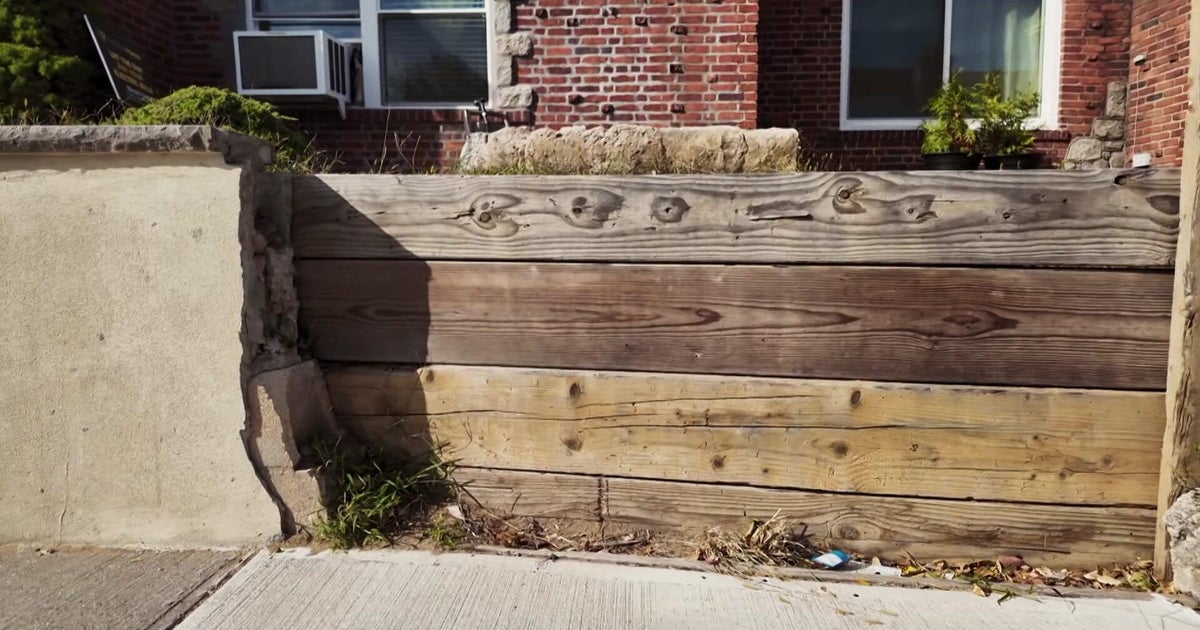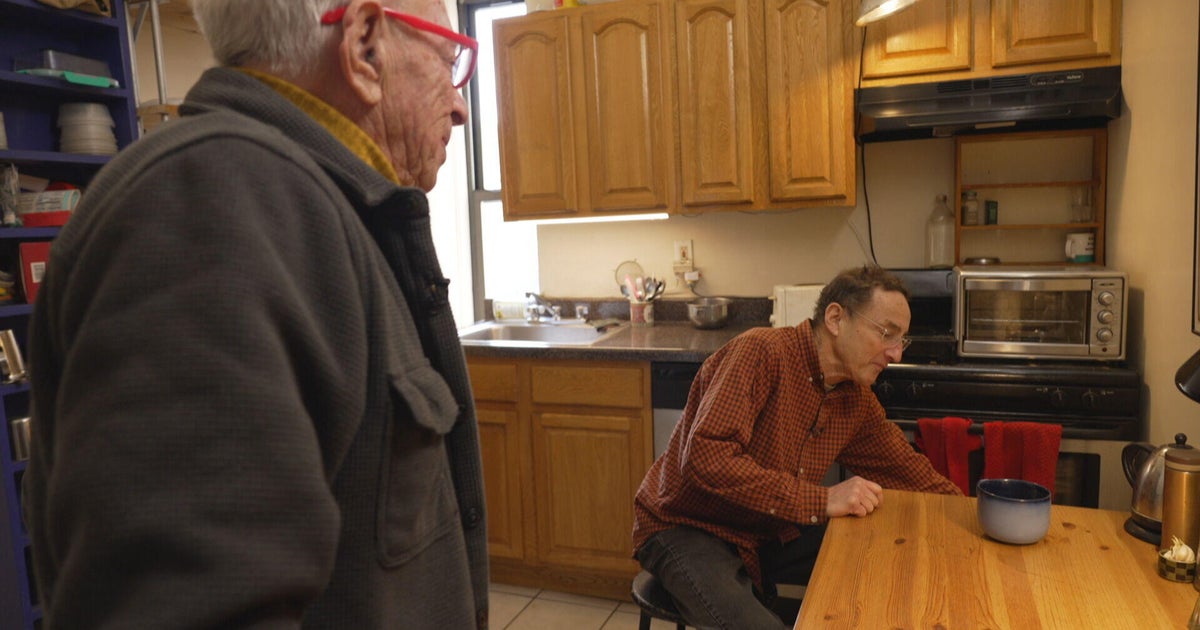Mobile Homes Vs. Neumann College
By Pat Loeb
Philadelphia (CBS) -- Don Mangino rolled it all in when he bought his mobile home, 14 years ago.
He figured it would be his last major expense and putting it down at Fisher's Mobile Home Park, at Concord and Convent Rds. in Aston Township, his last major move.
"We thought we were going to be here the rest of our lives," he says.
Mangino's sense of stability was shattered, last April, when the township sent a notice that the owner of the park, whom residents pay monthly for the lot their homes sit on, had applied for a zoning change which would eliminate the mobile homes so he can build housing for students at nearby Neumann College.
The owner, Joseph Buoni, would retain ownership of the property and rent the building to Neumann, an arrangement he already maintains with a 21-unit building across the street from the mobile home park, at what is locally known as "Fisher's Corner."
Mangino wasn't the only one who became alarmed when he heard about plans for another Neumann residence on the site he calls home.
Most of the residents of the 25 homes in the park are elderly and many are disabled and the prospect of moving is daunting.
"It's been very, very hard," says Millie Pearson, 83, who uses a walker. "You don't know where to turn."
Mobile homes are not actually mobile.
Moving them is expensive and difficult, even, sometimes, impossible.
"People have everything invested here," says resident Pat Kerner. "Whether that was a bad thing to do, I guess in hindsight maybe it was but people were trying to set themselves up to live the rest of their lives in a safe environment that was on one floor that didn't require any government assistance."
Residents say they fear losing their investment but also worry they'll never find anything comparable.
"There's nowhere to go," says Mangino. "I've been checking everywhere. Every government facility is a five year waiting list. We might end up in a shelter, who knows?"
Buoni, the land owner and developer, is sympathetic, as are township commissioners.
The commissioners have delayed a vote on the zoning change indefinitely, letting Buoni know they "want the residents taken care of," according to a source.
Buoni, himself, says he's put the project on the back burner and is also concerned about the residents.
"They've been my tenants, some of them for 13 years," says Buoni, who bought the park from the Fisher family in 2000. "I'm just trying to figure out how to get them what they need so that everyone can be semi-happy, if we do move forward."
Kerner is skeptical.
She expects the project to advance and wants more solid assurance that the residents will receive help moving.
"I'm not unaware of the benefits that it has for the area," she says. "I just want a good outcome for everybody and to me that is that everybody finds a decent place to live that's affordable for them."
Kerner's biggest disappointment is the indifference of Neumann College, of which she is an alumna and former employee.
Neumann would be one of the primary beneficiaries of the zoning change since student housing is scarce.
A letter of support from Neumann's president was included in the zoning change application.
"The Buoni Residence has served the university well," wrote College president Rosalie M. Mirenda. "As a result, we are interested in engaging in discussion with you about another facility that would add beauty to the neighborhood and serve Neumann's needs for additional space."
Neuman officials, though, refuse to meet with residents.
"The Franciscan tradition was something that was really emphasized over there," says Kerner. "They had an opportunity here to minister to the people over here and they just walked away from it."
Neumann also declined to speak with KYW newsradio about the project.
Kerner says she contacted the college, believing officials there didn't understand the difficulty the project created for her and her neighbors, and because she thought they would want to provide assistance and had many ways to do so.
For example, she says, the college has a social work major and suggests students could help residents with paperwork as part of their training.
"These people could help," she says, "but they won't sit down with us. They say they're not involved."







